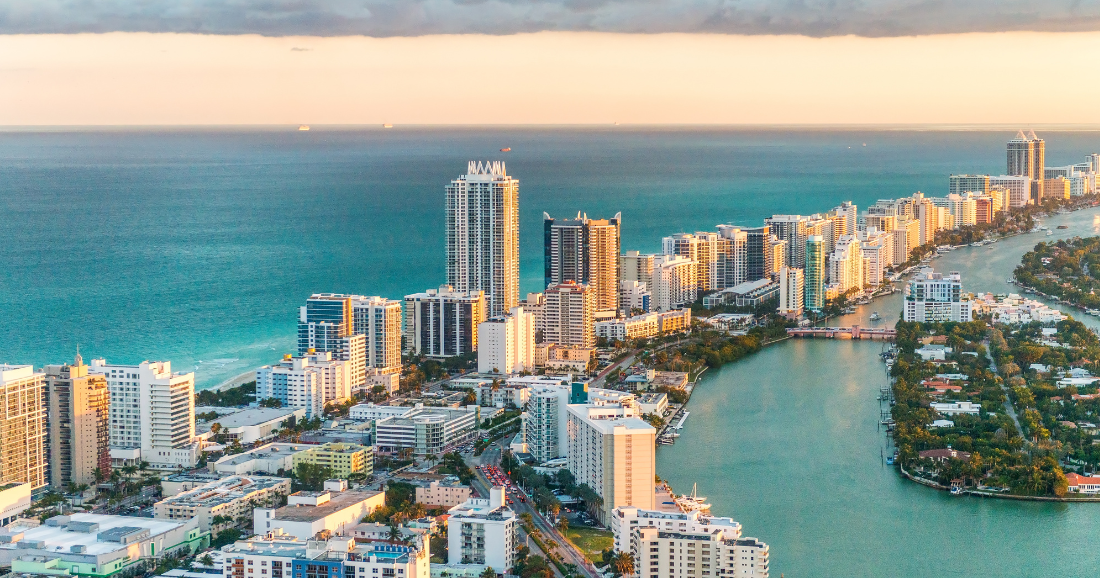Number of Miami elders with mortgages ranks among the nation’s highest | Real Estate

Still carrying the burden of a mortgage in your retirement age?
You’re not alone, at least in the Miami area, where 23.52% of all mortgage holders were age 65 or older in 2022, according to the latest report from Lending Tree.
Miami ranks among the top three largest 50 metros in the U.S. with the most retirement-age mortgage holders, trailing only San Diego (24.18%) and just ahead of Las Vegas (23.51%). The average of the 50 metro areas studied was 18.96%.
“I’m not surprised,” said Key Biscayne resident H. Frances Reaves, president of Parent Your Parents, a senior concierge service providing expert advice to help protect the elderly and their children from scams.
“As someone who deals with the elderly, I know a few wealthy people who don’t (have a mortgage), but I know a lot of people in Miami who do,” she said.
Lending Tree, an online loan marketplace for mortgages, small businesses and other loans, analyzed the latest U.S. Census Bureau in its research, which showed more than 10 million seniors across America are still paying mortgages.
What the report showed specific to Miami (which, incidentally, had the nation’s largest share of retirement-age homeowners in 2019 before the pandemic):
– Share of 65-and-older homeowners with a mortgage: 23.52%
– Median value of homes owned and occupied by those 65-plus: $334,300
– Median value of all owner-occupied housing units in Miami: $362,500
– Median monthly housing costs for mortgaged homes by those 65-plus: $1,682
– Median monthly housing costs for all owner-mortgaged units in Miami: $2,005
Reaves agrees there are tax breaks and maybe a few other benefits that come with a mortgage, but she said a 7% interest rate, “plus all the fees that come with it,” is why she would stay away from the loan.
Sometimes, though, a mortgage might be necessitated when it comes to life’s unexpected adventures.
“Say you’re 60 or 65, and you’ve almost paid off your mortgage, or even if you’ve paid it off and, heaven forbid, you get really sick,” she explained. “There’s a thousand reasons, but to pay off that medical bill, or to pay off (a child’s) college, for example, you would want to remortgage or get a first mortgage again (for the amount of that bill).
“The minute you don’t pay your bills is when your credit score goes down. And you want ‘excellent’ (ratings) although most people are ‘good’ at 700-750, and then you won’t be paying 29% (for credit charges) but rather maybe 16-17%.”
On a broader scale, the Lending Tree report also showed that, typically, homes owned by those 65 and older (with a mortgage) were worth an average of $20,214 less than those owned by the general population, up from $10,626 in 2019. Los Angeles was the only exception.
And, median monthly housing costs for 65-plus homeowners with a mortgage came in at an average of $297 less than the overall population with a mortgage.
On the flip side, Salt Lake City, Austin and Dallas had the smallest share (14%) of the 65-plus owners owing money on their homes.
According to a report by Bankrate, entitled “Mortgages for Seniors: What to know before getting a mortgage in your retirement,” it indicates that age is not a factor in deciding whether or not a borrower is qualified, due to the Equal Credit Opportunity Act.
When it comes to financial security, however, three areas are examined by mortgage lenders: credit history and score; debt-to-income (DTI) ratio; and income and other assets.
Bankrate reports that the minimum credit score to get a conventional loan backed by Fannie Mae or Freddie Mac is 620, although with that score you wouldn’t qualify for the best rates. You can check your credit score each week before applying for a loan, free of charge each week through the end of 2023 by visiting annualcreditreport.com.
Working with a financial advisor is likely one of the best ways to ensure your mortgage would be covered for the long term.
Reaves also brought up the subject of reverse mortgages (not mentioned in the Lending Tree statistics), which she sees a lot of on Key Biscayne.
The way it works is, “you don’t have to pay it back (to the bank) until after you die, at which point they sell the house (and excess money, if any, would go back to the estate) … unless you can sell it for more before then,” she said. “When it was 2 or 3% (interest rate), it might have made some sense, but I’m not a reverse mortgage fan.”
It’s just one avenue for elderly property owners who might want to get rid of their mortgage payment, but “there are a lot of unknowns,” she warned.
According to a 2022 report by Yahoo! Finance, Experian analyzed the average mortgage debt by specific age generations across America. Overall, mortgage debt rose $13,587 over the 2020 level to a total of $299,242 in 2021 ($18,979 more than the average amount before the pandemic in 2019).
In that report, Experian’s calculations on the average mortgage debt breakdown by generation showed:
– Generation Z (16-24): $192,276
– Millennials (25-40): $255,527
– Generation X (41-56): $259,100
– Baby Boomers (57-75): $198,203
– Silent Generation (76+): $163,254
And, when it comes to savings, Fidelity’s financial group has recommended savings at age 60 to correspond with eight times your annual salary, while at age 67 a safe bet would be 10 times your annual salary (so, for example, if you’ve made an average of $50,000 a year, your savings should equate to $500,000 at that age).
When it comes to mortgages for seniors, one thing is for certain: one size doesn’t fit all.


